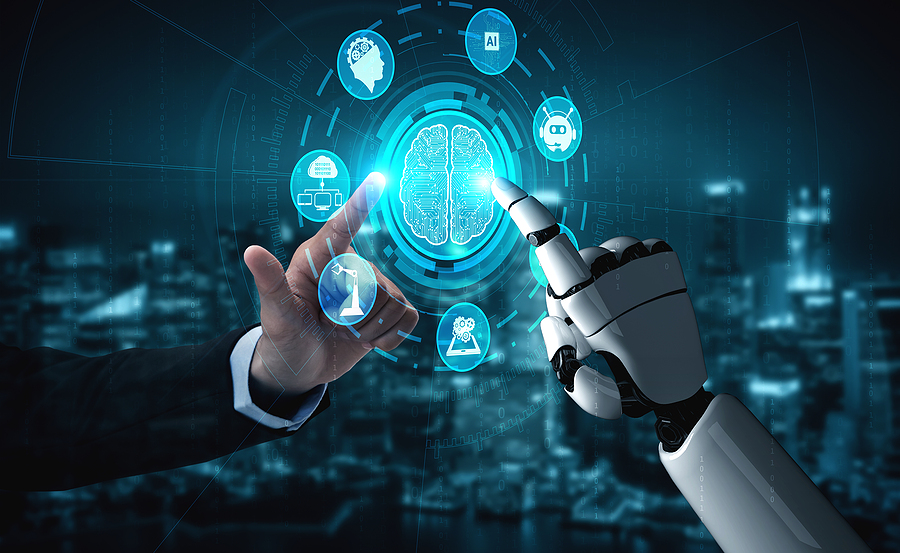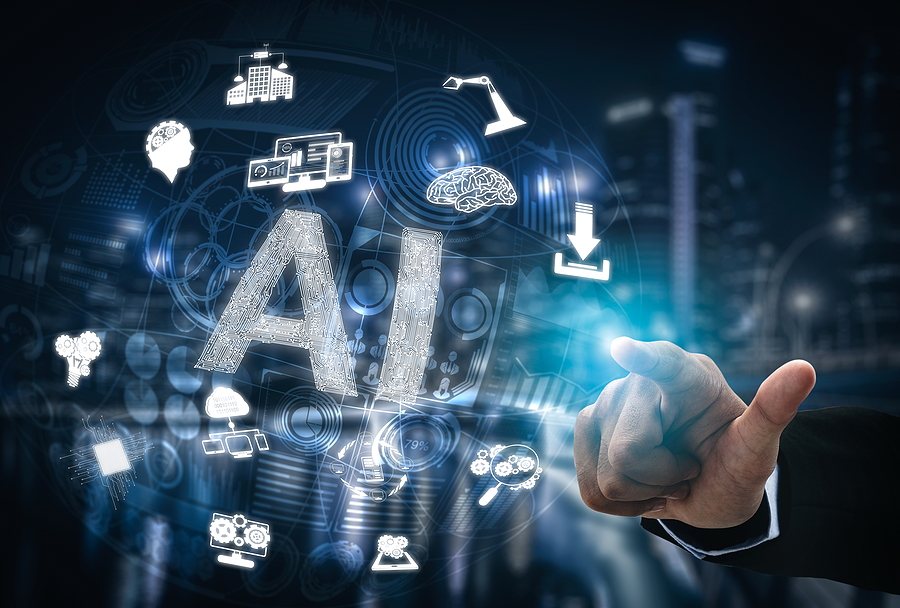Deep learning, also called deep structured learning, is a part of machine learning based on artificial neural networks and representation learning, which can be supervised, semi-supervised, or even unsupervised. *deep” in deep learning means using multiple layers in the network. Deep learning involves an unbounded number of layers of bounded size, which permits practical application and optimized implementation while retaining theoretical universality under mild conditions. For efficiency, trainability, and understandability, deep learning layers are also permitted to differ greatly from biologically informed connectionist models, thus the “structured” part.
Deep learning comprises of
Table of Contents
- Deep neural networks
- Deep belief networks
- Deep reinforcement learning
- Recurrent neural networks
- Convolutional neural networks
- transformers
Deep learning is widely used in fields like
- Computer vision
- Speech recognition
- Natural language processing
- Machine translation
- Bioinformatics
- Drug design
- Medical image analysis
- Climate science
- Material inspection
- Board game programs
Benefits of deep learning for business
- Helps in the early detection of fraud with an improved warning system
Today, when technology is available to everyone at the tap of the finger, It’s important to protect businesses from criminal and villainous activities more than ever before. For instance, many companies have difficulty finding solid solutions to safely store valuable and sensitive data.
It is known that data stored in servers may have higher chances of cyber-attack and illegal access. One way of reducing data fraud and subsequent losses is by the prevention and early detection of illegal activities. Deep learning utilizes the AI-driven system to detect and prevent fraud. A DL may advise taking appropriate action after detecting and classifying any suspicious activity or transaction.
- Automates operational streamlining to help make better decisions
Any operational drawback can detect wasted costs, missed opportunities of sales and revenue capital, or non-accurate reporting leading to poor customer retention. Through deep learning, a business can incorporate error-free predictive modeling algorithms in their processes to automate business procedures. Introducing such procedures will help you understand any operational flaw and then distinguish anomalous patterns based on the valuable insights you have discovered. Additionally, deep learning practices help detect challenges such as poor performance metrics and miscommunication on time, reducing any possible risks. So, businesses now can streamline their operations since quality decision-making can multiply their existing profit margins.
- Aids Financial Analysis
Yearly financial analysis is integral to understanding the complete portfolio of your business. Businesses can increase productivity and scale their operations with utmost robustness with the help of qualitative and quantitative approaches to machine learning and deep learning. Also, automated applications handle taxes and internal audits with the support of security, compliance, credit-score management interfaces. Chatbots are also used by many companies to eliminate inefficiencies in suppliers, eliminating the complications inherited from traditional finance methods.
- Boosts customer satisfaction
Deep learning also promotes improving customer loyalty and ensuring superior customer experience. This is done by using the previous call records to analyze the customer behavior and assigning the most suitable customer service executive based on that. By doing this, customer relationship management costs are drastically reduced, and time is saved. As a result, major organizations use predictive algorithms to suggest products their customers might like.
Businesses can also use deep learning to utilize data better to carve out the best offer for their customers. It makes understanding past customer purchasing patterns much easy. The reason for this is that deep learning allows you to connect with your customers’ information about how they use your products and services. You may use the acquired information to produce customized products. This can help improve your customer’s experience, which increases the chances of customer retention.
- Better data utilization
Deep learning algorithms can scan data faster, discovering features that help easy understanding and analyzing, thus enabling businesses to undertake necessary measures at the right time. Deep learning can also structure an inexhaustible amount of unstructured data virtually.
- Improves cognitive services
Natural language processing and image recognition can also be improved by machine learning.

Image recognition technology in deep learning improves the security and convenience of authentication options, as well as the power of self-service retail like cashierless checkout. Amazon Go is an example of this type of innovative retail experience.
Deep learning offers companies the potential to cater to a wide range of audiences with great ease from different cultures, geography, and ethnicity. It takes advantage of natural language processing.
So, to conclude
Deep learning helps a business in enhancing its scalability and improving the overall operations across all areas. Numerous AI tools and ML algorithms have gained tremendous popularity in the business analytics community owing to the significant changes that it bring to a business functioning. Therefore, organizations can now benefit by understanding how businesses can use machine learning and implement the same in their own processes.
With growing volumes of data, easy access to data, and cheaper and faster computational processing, deep learning jobs have boomed. If you are looking for any deep learning course or deep learning training and certification programs, there are many ed-tech spaces that provide the same. You may choose one depending upon your need and requirement.
Image Source: BigStockPhoto.com (Licensed)
Related Categories: Tech, Reviews, Work








